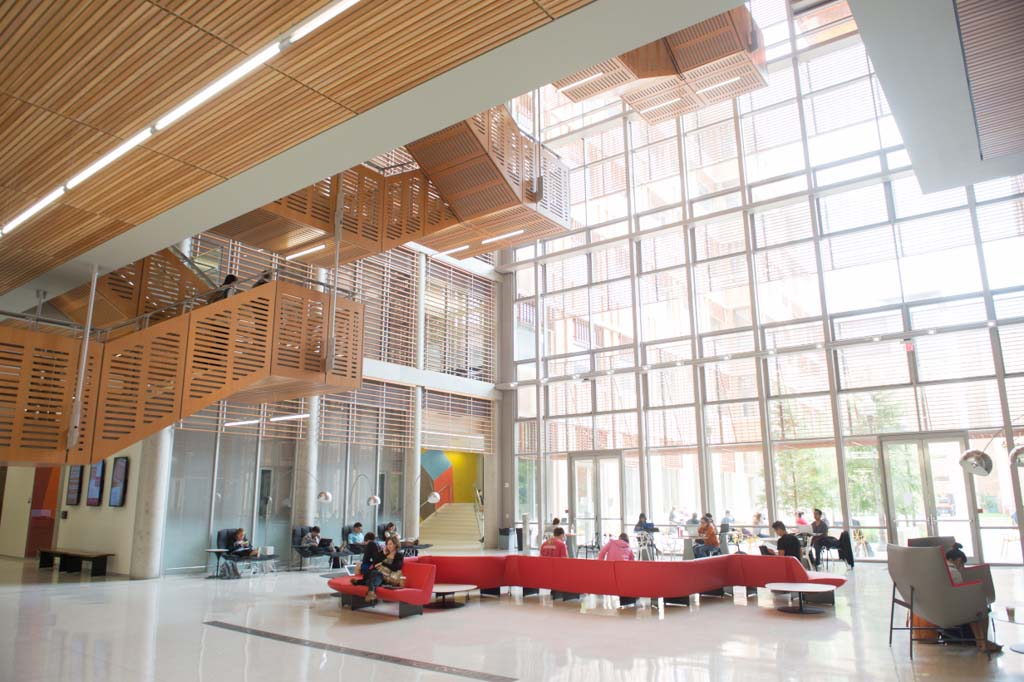
Anthony Cardozo discovered his passion for coding in high school, building small games for his friends. Later, he launched an online candy store that enabled him to reach customers far beyond his neighborhood and city. “These experiences showed me how technology can shape people’s experiences in meaningful ways,” he says.
Danielle Nyame is passionate about the intersection of technology and human impact. One day, she hopes to work as a software engineer or researcher who leverages AI for societal good.
Kaden Le’s childhood love of video games inspired him to create his own, despite limited resources. Now, he plans to positively impact the world through software and machines that help all people, “no matter their background,” he says.
These first-year students in Computer Science all share a few common traits – they’re high-achieving, innovative and have tremendous potential. They’re also Dijkstra Scholars and members of a small cohort who receive a $30,000 scholarship over four years to support their academic journeys, as well as mentorship, and a supportive peer network and community.
Now in its second year, the Dijkstra Scholars Program is a transformational initiative designed to dismantle barriers to a computer science degree and foster extraordinary success.
Students with family incomes below $60,000 face unique, non-academic challenges that disrupt their progress - 42% of these students failed to meet the necessary GPA requirements to continue in computer science. Some 81% of UT Computer Science students with a household income under $65,000 are first-generation students. Add to that, less than 50% of Texas high schools offer computer science courses, which means many UTCS students are first-time programmers.
UT Austin is committed to educating the next wave of computer scientists ready to lead the future of technology. But for many high-achieving, high-potential students—particularly those from low socioeconomic communities and first-generation backgrounds—the path to a computer science degree is very often fraught with financial and academic obstacles.
Through the Dijkstra Scholars Program, students receive the vital financial, academic, and peer support resources necessary to not only survive, but truly thrive in their studies, transforming their potential into world-changing impact.
For students like Anthony, Danielle, and Kaden, receiving a Dijkstra Scholarship has been transformative. Here’s what they’ve had to say about their experience:
"This scholarship will allow me to focus more fully on my studies and projects at UT... One day, I hope to pay this forward by helping others in the same way you have helped me." - Anthony Cardozo
"This scholarship has not only eased the financial burden... but has also reinforced my motivation to excel and make meaningful contributions in my field," which includes developing AI-powered applications focused on cognitive and social impact.- Danielle Nyame
"My goals feel a lot more achievable with this scholarship because I can devote all my efforts to my dreams without the worry of financial restrictions." - Kaden Le
UT Computer Science’s Dijkstra Scholarship program is participating in this year’s Hornraiser. Last year, alumni and supporters helped raise more than $50,000 to support the high-achieving Dijkstra scholars. If you’re interested in supporting the program this year, you can read more and donate on the Hornraiser website.



